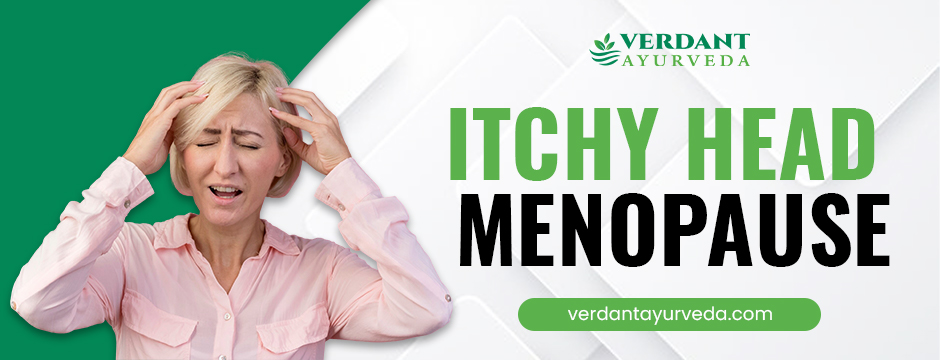
When we think of premenopause, most of us imagine the classic symptoms: hot flashes, irregular periods, and maybe some mood swings. But what happens when your scalp starts itching like crazy, or your skin suddenly feels like it belongs to someone else? These less-talked-about signs can catch you off guard and leave you wondering if something else is going on. The truth is, Itchy Scalp and Premenopause can show up in ways you never expected—subtle, annoying, and sometimes downright baffling.
Hormonal shifts during this phase of life impact your entire body—from head to toe—and your skin, scalp, and even your emotional well-being aren’t spared. For many women, an itchy scalp is more than just a nuisance; it’s a wake-up call that your body is undergoing significant changes. And that’s just the tip of the iceberg. In this blog, we’re going beyond the basics. We’ll explore some surprising symptoms of premenopause—like dry, irritated skin, thinning hair, and yes, that mysterious itchy scalp.
The Hormonal Chaos Behind It
Premenopausal is the time before menopause, where the levels of hormones estrogen and progesterone start to fluctuate in your body. Although these hormones mainly affect the reproductive system, they also affect the skin, the hair, and the brain. When estrogen declines, the skin will lose moisture and elasticity, and the oil gland activity of the scalp can be impaired or overreactive, which can result in scalp dryness, irritation, and even seborrheic dermatitis.
Why Is My Scalp Itchy?
There are several reasons your scalp may be itchy during the premenopausal change:
- Dry Skin: Since estrogen is responsible for maintaining moisture levels in the skin, low levels will make the skin on your scalp dry and flaky.
- Sensitivity: Hormonal changes can cause the scalp to become reactive to hair products or environmental changes.
- Seborrheic Dermatitis: A common condition that can be triggered by fluctuations in hormones that causes patches of scaly, itchy patches in small areas or on your whole scalp.
- Stress: The emotional stress of the premenopausal change may trigger or worsen disorders of the scalp.
If you have been able to rule these options out, it is certainly time to start looking at the hormones in your body as the root of the problem.
Other Surprising Premenopausal Signs
An Itchy Scalp and Premenopause aren’t the only surprises. Here are some other surprises that you may experience during premenopause.
Burning Mouth Syndrome
Your mouth can indeed burn without any trauma. This ultimate random sensation is associated with lower levels of estrogen. Your taste buds and oral comfort may also be affected.
Crawling Skin (Formication)
Some women may report something that feels like ants crawling on their skin. This is called formication, and estrogen fluctuations may be due to young women’s estrogen levels actively affecting nerve function.
Electric Shock Sensation
You may experience little, sporadic jolts that feel like electric shocks—mostly in your head, neck, or chest. This occurs when your hormones are fluctuating.
Changes in Body Odor
Hormones may also affect how much you sweat and how your body smells, making you feel like you no longer recognize your own body.
Thinning Hair or Hair Loss
Since estrogen helps keep hair growth regulated, when it is lower, women may notice hair thinning or excessive hair loss, particularly at the top of their head (crown) or at the part in the middle.
Bloating and Other Digestive Issues
Fluctuating hormones can lead to slowed digestion, which may manifest as bloating, gas, decreased appetite or cravings.
Breast Sensitivity
You may find yourself with tender, swollen feeling boobs and no period, as your hormones are changing.
Insomnia and Night Sweats
Though hot flashes may be the hot topic in every conversation, night sweats and lack of sleep are just as common and exhausting.
Natural Solutions for Relief

Finding relief for itchy head menopause does not mean you have to jump right into hormone replacement therapy. Some natural solutions may help your body adjust more smoothly to the changes:
Scalp-Centered Care
- Use gentle, sulfate-free shampoo and avoid chemical treatments.
- Apply natural oils such as coconut oil, neem oil, or tea tree oil to provide comfort for your irritation.
- Limit the use of any heat styling tools that tend to exacerbate dryness.
Herbal Remedies
- Shatavari and ashwagandha are known in Ayurveda to balance hormones and stress.
- Western herbs such as black cohosh and red clover help co-regulate hormones.
Dietary Considerations
- Increase your intake of omega-3 fatty acids. This can be found in flaxseeds, walnuts, and fish.
- Increase your phytoestrogens in foods such as soy, lentils, and chickpeas.
- Decrease sugar and caffeine, which elevate cortisol levels and symptoms.
Hydration and Moisturizing
- Drink plenty of water throughout your day and apply heavy body cream and vegetable oil to your skin and scalp.
- Try to use a humidifier at night, which will help keep moisture consistent for your skin overnight.
Stress Reduction Programs
- Consider practicing mindfulness, meditation, or yoga.
- Calm movement and breathwork will help regulate your nervous system and calm the symptoms of temporary insomnia and night sweats.
Bottom Line
Itchy Scalp and Premenopause is more than just hot flashes and mood swings. From an itchy scalp to crawling skin sensations, your body is communicating that it’s going through something major—and you deserve support that honors that process. Rather than masking the symptoms, look for holistic solutions that help restore balance from within.
Verdant Ayurveda offers a natural and nurturing path through this transition. With time-tested Ayurvedic consultations, scalp-friendly hair remedies, and herbal techniques designed to harmonize your hormones, you can manage your symptoms gently and effectively.
